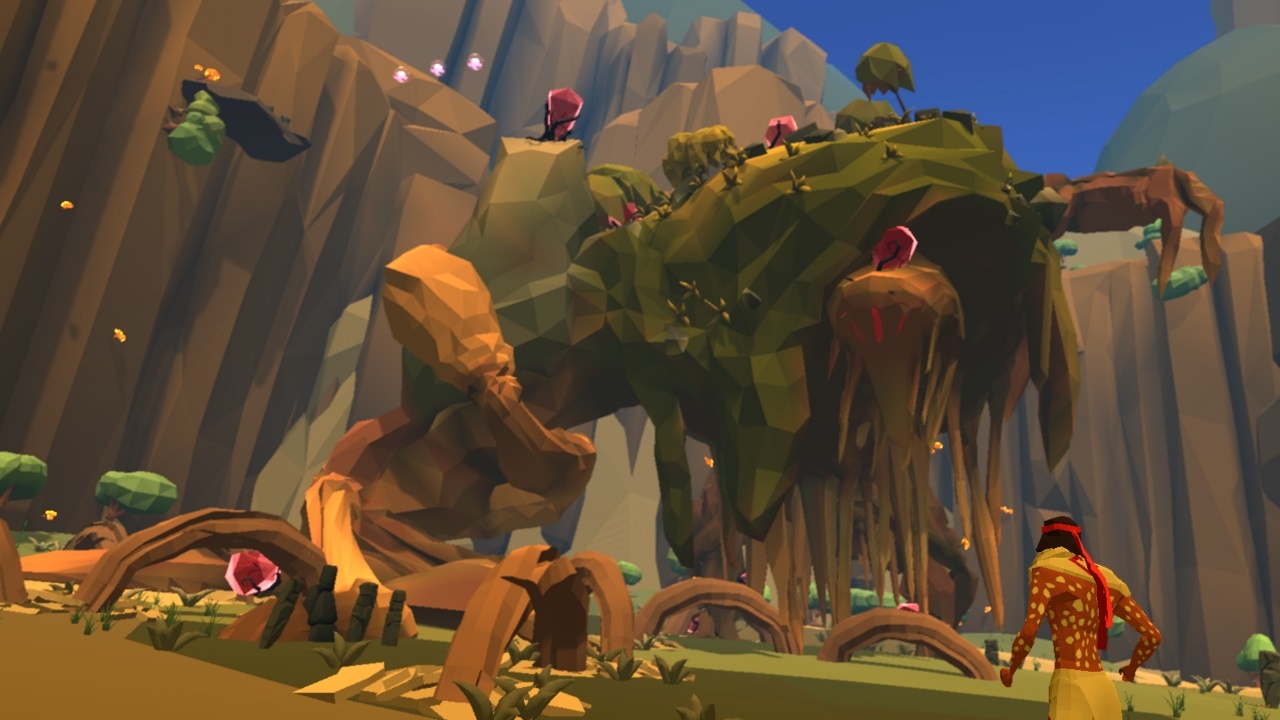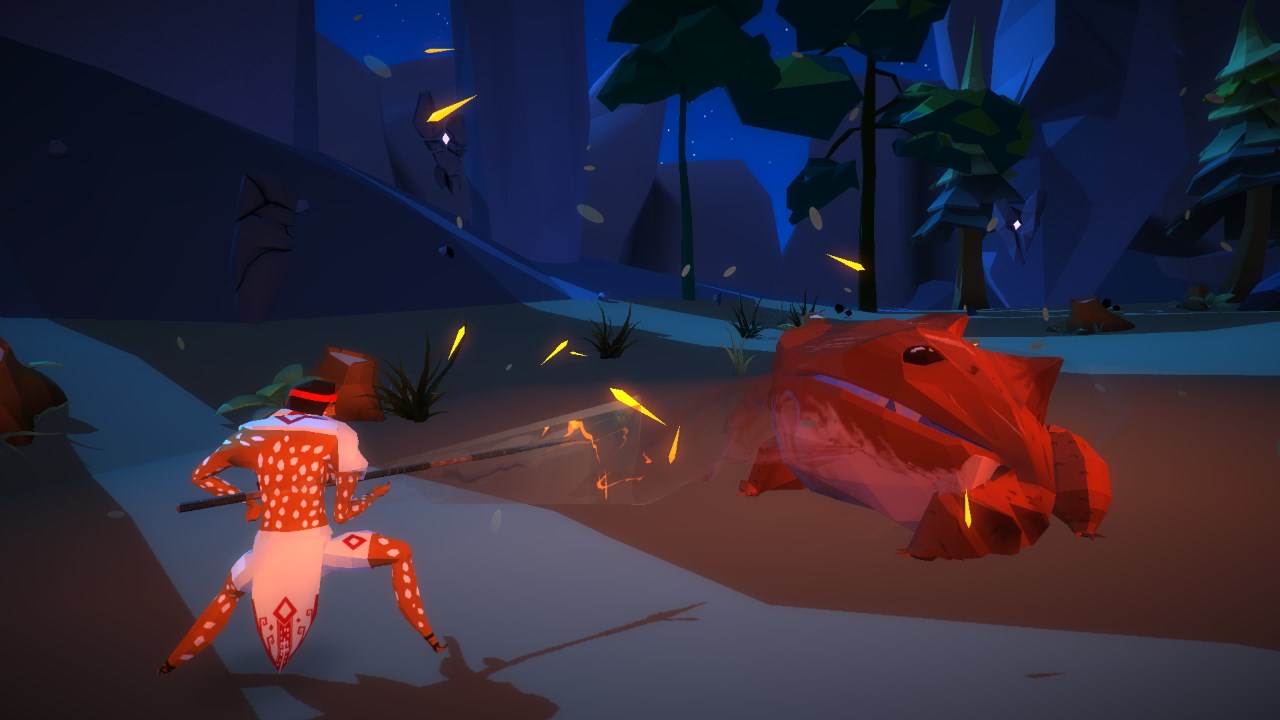
There are always going to be defining moments for a gaming studio or developer. For some, it’ll be their third or fourth game that really gets renown (or, in the case of Rovio, somewhere around their 23rd). But there’s a breakthrough moment when everything clicks, and a game becomes something completely unexpected and wonderful, an experience that’s more than just entertainment. It’s borderline transcendent, because you just become lost in the world, the concept, the story that’s being told to you. For better or worse, Lienzo studio, a Mexico based development team, their first title, Hunter’s Legacy, seemed to have slipped between the cracks of an overly crowded Steam marketplace. But they’ve taken a real chance by putting their second title, Mulaka, straight onto the Nintendo Switch, and it’s something that seems to have paid off in ways that wouldn’t normally get me excited. In fact, this game has gotten me straight up drawn in, and I can’t wait to share what I’ve gleaned.
Mulaka is an interpretation of ancient folklore passed down by the Tarahumara people, who live and come from the Northern part of Mexico. Mulaka, our protagonist, is a child of the stars and also a Sukurúame, or tribal shaman. Sensing a spreading darkness in the land, Mulaka sets out to find and beseech the support of the animal demigods that have hidden themselves throughout the Tarahumaran lands. Utilizing the power of might, magic and the blessings from the demigods themselves, Mulaka will do everything he can to restore the world to the beauty and balance it once possessed, for darkness has no place when there is a Sukurúame watching over. The storyline is incredibly detailed with bits of mythology and creation tales baked in, talking of the Sun and Moon as the Mother and Father, respectively, and how the world was once so weak and frail, but the humans, the star children and the demigods worked together to make it dry and strong. It’s utterly fascinating, and only gives enough to keep the player engaged. Unlike Never Alone, Mulaka is more focused on the game itself and less on the story, which, to be fair, is still pretty damn engaging.
As for the gameplay itself, Mulaka puts you in a 3rd person adventure action setting, letting you travel and explore far and wide in your hunt to discover the three demigods, each of whom is sealed by three gemed stones (which are cleverly hidden) and protected by a sacred beast who’ll absolutely beat your ass if you’re not ready. Mulaka has one thing right out the gate that I found sorely missing in other adventure ages, and that’s the ability to run and never stop. You see, a lot of adventure games recently focus a ton on realism and making sure your character will drop from exhaustion if they run too much, die of exposure in bad elements, starve to death if they don’t eat every thirty minutes or throw a tantrum if they can’t check in on their Fantasy Football League twice a day. Mulaka doesn’t have this caveat with running, and, best of all, the ability to run for great distances without stopping is actually steeped in the Tarahumara people’s own skill and lore. Mulaka has several instances where running is not only such a boon (in terms of large, accurate landscapes) but also is the only way to catch certain characters and animals who you need to move forward. If running were the only thing this game had going for it, however, it would be sorely simple and I would have stopped writing already. There is much, much more beneath the surface.

Mulaka does have a fair number of puzzles that need to be solved, but that isn’t even remotely the centerpiece of what this game has to offer. In fact, had the description of the game not specifically mentioned the puzzles, I probably wouldn’t either. It’s not that the puzzles are boring, but they are fairly simple and pretty manageable through a little thing called trial and error, in which you suffer no penalty from getting it wrong except it takes a few minutes longer to figure it out. Accomplishing the puzzles, like using the right ability to unlock an area or smacking fountains until they align properly, should be old hat to anyone who’s done literally any kind of adventure game. Oceanhorn, Breath of the Wild, even Unboxed were significantly more critical in discovery than those of Mulaka, so don’t focus too much on those elements in order to have a great time.
What helps Mulaka shine is the combat and action that the game bakes in. Right away, you have to start battling monsters and creatures that are indigenous to this storyline, starting with scorpions and mantis people and eventually fighting ghosts, giant toads and even more bizarre denizens of the dark world. Mulaka is a master at the spear, and you get into an excellent groove of light and heavy attacks, dodging and rolling and, on occasion, delivering a massive finisher attack that’s enough to take care of several minor enemies at once. I grew to hate certain bad guys, like the flying mantis mages who hurled crippling blasts of purple energy, because they were too quick to hit with a thrown spear and usually flew out of my reach for a jumping smack. Still, the game was very clear in its intentions: keep on top of things. As long as you remained moving and accurate, you could usually clear the waves of enemies that you found without getting smacked around too much. However, if you do get hit, a huge piece of advice: don’t heal till after battle’s over. As much as I loved watching Mulaka do a dance of mystical celebration every time he healed with an aloe potion, that afforded precious seconds where someone could hit me and I wouldn’t get healed at all.
The way the powers evolve and improve Mulaka were incredibly satisfying, and added a lot of replay value and exploration points to the game. Many people lauded Breath of the Wild for its massive, expansive world, but there were moments of the game that just felt too boundless for me: I’d get lost and forget what I was supposed to be doing. Mulaka divides each area up nicely, offering physical and imaginary boundaries to keep your free running hero from sprinting off into the distance and dying on the mesa. Instead, you’ll have clear moments of memory – an oddly shaped rock wall, or a glowing symbol of three bear claws – that you’ll mentally note to come back to later. Then, after you meet Tata and figure out how to transform into a bear, you have the option to go back, find that offending spot and break it down so you can reap the treasures inside. Mulaka gains bombs, the ability of flight and more in his quest to save the land, and these all are aided by his mystic sight he has from the very beginning, which acts as both a compass and a roadmap to keep you on task…should you want to. After all, with a ton to explore and unlock, Mulaka can be a fast quest or it can be a thorough, deep-seated collect-a-thon. Once you realize the points you’ve gotten from fallen beasts can be spent in a couple of towns to power yourself up even further (faster spear recovery, quicker finisher move power up), the game turns into a whole new experience.

And I absolutely loved the art style of this game, from head to tail. There’s this beautiful, angular presentation of everything that pulls the player into the story, like you’re hearing it around an open flame against the starry sky. The enemy design is delightful and alien, and Mulaka stands as both a powerful hero but also a believable one. He’s the champion of the people, of the land itself, and you trust and follow him as the NPC humans do. The landscape is gorgeous and varied in texture from start to finish, and it’s only more endearing when you see photographs of the countryside where the game takes place and realize how true to form it is. I did feel a little strange getting rewarded for knocking over people’s tents and freestanding rock formations, but that’s more of an aside than anything else. Additionally, as creepy as the normal monsters were, the gargantuan nature of the demigod bosses were seriously impressive, and each requires a certain amount of cunning to figure out how to defeat them. When I realized that the first crab-like boss needed to brain itself by crashing into the stone pillars around us, it was such an “aha” moment that I had to pause and call my kids into the room to watch it happen in real-time.
Mulaka has a bit of something for everyone, and I mean that in the most sincere fashion. There’s a ton of exploration and adventure, good fighting combo work, and plenty of collectibles for the thorough player to discover. The cut scenes and explanations give a lot of background and insight to the tales of the Tarahumara people, but they can be easily skipped if you really are just intent on the fighting and framework. And, as always, you can take it leisurely, one foot in front of the other, or at the speed of wind, sprinting about with reckless abandon. In all cases, this is a fantastic tale that really did a ton for me in terms of engagement and enjoyment. A perfect blend of storytelling and gameplay, Mulaka has certainly won itself a place in my heart, and I encourage others to seek it out as well.

REVIEW CODE: A complimentary Nintendo Switch code was provided to Bonus Stage for this review. Please send all review code enquiries to press@4gn.co.uk.
Subscribe to our mailing list
Get the latest game reviews, news, features, and more straight to your inbox
Thank you for subscribing to Bonus Stage.
Something went wrong.
-
Gameplay - /10
0/10
-
Graphics - /10
0/10
-
Sound - /10
0/10
-
Replay Value - /10
0/10





